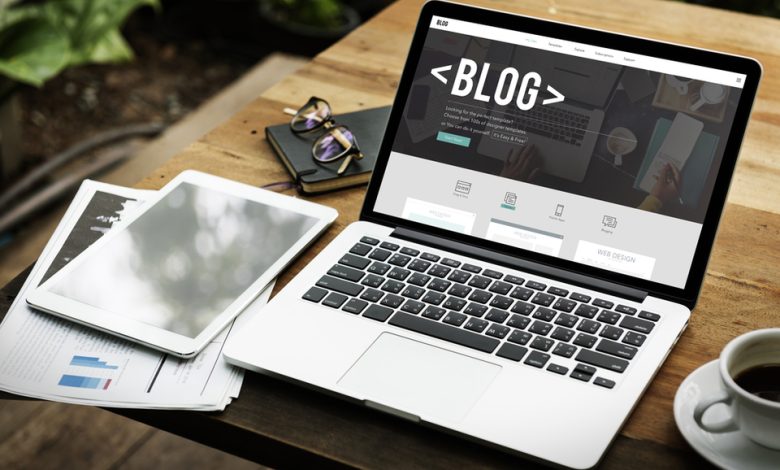
Initially, blogging was limited to online journals because becoming a professional blogger and earning money were not mainstream goals. However, since then, the blogosphere has evolved tremendously. People now blog for various reasons, including:
- Meeting new people
- Increasing brand visibility
- Becoming famous
- Organising thoughts and learning
- Establishing authority
- Reaching a larger audience and more
Blogging is useful in students’ lives; it helps them understand the digital era and enhance their writing skills. Unfortunately, most students don’t enjoy writing tasks much and don’t make an effort to improve their writing. Therefore, some of them approach academic writing services to complete their assignments. While there is nothing wrong with taking help, blogging is a great way to develop the habit of writing and eventually improve it.
People write several blogs on different niches, including food, fashion, motivation, lifestyle, entertainment, etc. But, of course, you can always pick your niche according to your interest. Whatever topic you go for, blogging comes with various benefits for students. So, let’s see what they are.
Benefits of Blogging for Students
There are tremendous benefits of blogging for students. For example, it can significantly develop their writing skills, think critically, and better understand the world. However, some of the more crucial benefits of blogging are:
- It helps students express their perspective and enable problem solving skills
- Writing can sharpen their brain’s performance and learn many things this way
- Students can earn money by blogging
- SEO is crucial to learn in this digital era; blogging allows students to learn SEO efficiently
- Students can also learn all the techniques of creating beautiful websites
- Blogging motivates students to become better writers and readers
- It boosts their confidence and improves communication skills
Blogging teaches students to support their opinions and communicate their expectations. Now we know the advantages of blogging. It’s time to know how a student can start blogging.
10 Significant Tips to Start Blog
Writing blogs can be a nerve-wracking experience (at least initially). At first, there is a lot of enthusiasm but not enough self-confidence. It can be challenging, particularly if you’re unfamiliar with what works and doesn’t in digital content. Thus, here are the ten things you should know before beginning your first blog.
1. Choose the Niche You’re Interested In
To kickstart a personal blog, you must first select the right niche for your blog. So, choose a niche you are passionate about. It could be fashion, culture, wellbeing, or entertainment. A perfect niche is an excellent way to pursue your interest while having fun on your blogging journey.
Besides this, choose a theme with sizable audience interest. Once you’ve decided on the subject, validate it to ensure its viability. The three-step success validation process is outlined below.
- Examine the size of your niche
- Investigate your competitors
- Evaluate your monetisation possibilities
These three steps can help you to some extent when you start your first blog.
2. Pick the Right Platform
Many people begin blogging on popular platforms such as Tumblr, Blogger, or Medium. However, they usually have limitations. So, if you’re serious about blogging, adhere to their terms & conditions. Additionally, these platforms reserve the right to remove your blog without notice. Furthermore, most free platforms don’t allow you to earn money.
On the other hand, WordPress.org is the leading platform, allowing complete control over your blog. Bloggers can use the platform to add features, earn money, and manage their accounts as needed. After all, WordPress powered 39.6% of the internet in 2021.
3. Always Be Optimistic
Writing publicly can be a frightening ordeal, especially if you don’t have prior writing experience. But, remember, everyone, even the most famous bloggers, had to start somewhere.
So, accept your first blog post will not be perfect. It might even make you cringe in the coming years; but, it doesn’t matter. Your first shaky step as a digital writer will help you become a confident, seasoned, and polished blogger one day.
4. Use Social Media to Interact
Understanding your audience means you’ll have a better idea of what type of blogs and content will fascinate them. It is a good step to start your first blog post. Begin interacting with your audience through social media platforms such as Instagram, Facebook, and Twitter. It allows you to reach out to many people.
Select the best social media network and become an expert at leveraging it to achieve your objectives! Asking questions on a social platform with an intriguing quote is a great way to understand and engage your audience. If you get a lot of positive feedback, this could be a perfect way to start.
5. Consider Image Copyrights and License
Newbies frequently use images from the internet, which is not right! Don’t just use Google images because you could end up paying hundreds of dollars in image copyright violation fees later. Also, copyright holders can report a page displaying their work and request Google to remove it.
Considering all the ramifications, it’s worth paying for a Shutterstock license to get high-quality images for your website or social media platforms.
Another option is to illustrate your own images. Because most beginners are not graphic designers, you can use the free online tool Canva to create professional and appealing images for your blogs.
6. Add Eye-Catching Headlines
Despite themselves, people ‘judge a book by its cover’ and blog posts by its headlines! Therefore, you must write catchy headlines to get likes, shares, and conversion rates.
Intriguing headlines can help you engage a wide audience and get better results in less time, especially if you aim to learn alongside your studies.
7. Keyword Research Is Crucial
People frequently write excellent posts and yet fail to reach their intended audience. The major reason behind it is they don’t use the appropriate keywords. Generally, beginners rely on their educated guesses to create blog posts.
However, there are numerous online tools, such as SEMRush, to assist you in determining which keywords can bring traffic to your blog post. It also displays paid keywords used by your competitors to promote and advertise their blogs or campaigns.
8. Keep an Eye on Website Speed
Nobody likes slow websites, so search engines like Google provide an SEO benefit to help you speed up yours. So, optimise your blogger’s site speed and page load time for a better conversion rate.
A bad server can cause your site to slow down, and you risk losing your audience. Consequently, selecting the right web server, such as WordPress Hosting, is the key to a faster website. You can also use different plugins to serve cached versions of your website with just a few clicks.
9. Remember SEO Takes Time
The wait is well worth it!
We all want thousands of visitors to the website every day. However, like every good thing, SEO takes time. Therefore, writing and publishing new articles daily is essential to attract visitors.
When you rank first on Google for the required questions, you can easily maximise this traffic.
Research is essential for writing compelling blogs. It assists you in developing a clear understanding of what to write and provide insight into the target audience’s interests.
Because the internet is filled with everything, ensure to write engaging and unique content to create a distinct presence and improve SEO rankings.
10. Be Consistent
Although blogging necessitates consistency, you are not required to write each day. People typically post once per day or five days per week. Some well-known bloggers publish many new posts per day, which is not a good strategy. Too much content without sufficient gap can lose its charm. Besides, nobody is expected to churn quality content too often.
Decide how frequently you will publish, and then stick to that schedule. Because you are a beginner, you can start with three posts per week and steadily increase your rate.
Similarly, your social networks require consistency. In the case of social media, showing up every day to interact with your audience is highly recommended.
It’s easy to fall back if you’re not conscientious, and this is how most blogs die. Maintain your interest and avoid getting sidetracked from your objectives.
Start Writing Your First Blog Now!
You know the benefits as well as tips to start your first blog. But don’t rush! You only post your first blog once, so ensure making it compelling.
Remember, you will need significant time to think to write quality pieces. So, take enough time, and generate click-worthy content. Because the minute you get the hang of it, you can speed up the process and become an expert blogger soon.
You’re a beginner, and we know that! So, it might take some time to enhance your writing skills. Therefore, while setting up your blog, you can contact professional essay writers for your academic work. Till then, happy blogging (and writing).



